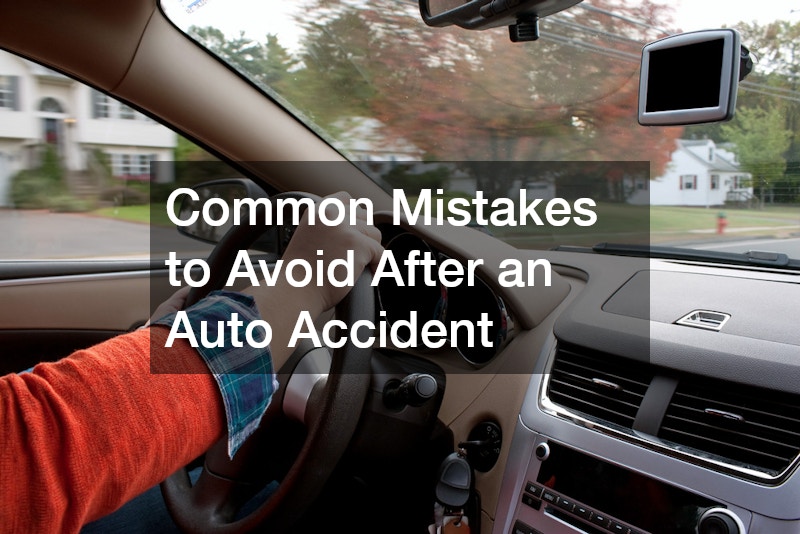Auto accidents are stressful, often leaving drivers disoriented and uncertain about what to do next. In the chaos following a collision, it’s easy to make hasty decisions that can complicate recovery, insurance claims, or even legal outcomes. Whether it’s a minor fender bender or a major collision, knowing what not to do can make all the difference in protecting your rights, your finances, and your safety.
Understanding the most common mistakes after an accident helps you take control of the situation with confidence. Many drivers, for instance, forget to document key details, admit fault prematurely, or delay medical attention — all of which can lead to costly consequences. Moreover, dealing with insurance companies, securing auto repair services, and navigating the legal landscape requires careful, informed action.
This guide explores the most frequent mistakes drivers make after an auto accident and how to avoid them. From handling insurance adjusters to understanding the importance of professional repairs, each section provides practical advice to help you stay calm, protect your interests, and recover more efficiently after a collision.
1. What Should I Do Immediately After an Auto Accident?
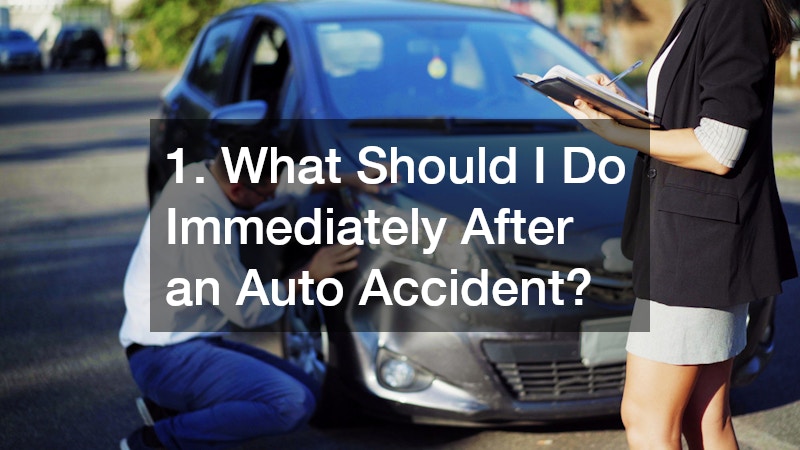
The moments immediately following an auto accident are critical. Your first priority should always be safety — check yourself and others for injuries, then move to a safe location if possible. Once everyone is out of immediate danger, call emergency services to report the accident. Even minor collisions should be reported, as police documentation provides an official record that can be invaluable later.
One common mistake drivers make is failing to gather enough information. Take photos of the scene, including vehicle damage, license plates, skid marks, and the surrounding area. Exchange contact and insurance information with the other driver, but avoid discussing fault or causes.
Next, consider contacting a professional for auto repair services as soon as possible. Many vehicles sustain hidden structural or mechanical damage that may not be visible right away. A qualified technician can assess your vehicle’s condition and prevent minor damage from becoming a major safety issue.
Remember — staying composed, organized, and proactive after an accident can prevent further complications down the road.
2. Should I Admit Fault at the Scene of the Accident?
It’s natural to feel apologetic after an accident, especially if you think you might be partially responsible. However, one of the biggest mistakes drivers make is admitting fault prematurely. Even a simple “I’m sorry” can be interpreted as an admission of liability, which may hurt your case later — even if the investigation reveals you weren’t at fault.
Instead of speculating or apologizing, stick to factual statements when speaking with law enforcement or the other driver. Let the police report document the situation, and allow your insurance company to determine responsibility based on evidence.
If you’re unsure about how to handle communication or repairs afterward, contact a local auto repair specialist to assess the vehicle and provide an objective estimate. Professional repair shops often work closely with insurance companies and can help ensure your claim is handled correctly.
Avoid discussing fault on social media or in text messages, too. Everything you say can potentially be used against you if there’s a dispute later.
3. How Do I Deal with Insurance Companies After an Accident?
Dealing with insurance companies can be one of the most frustrating aspects of an auto accident. Many drivers make the mistake of accepting the first settlement offer or giving recorded statements without understanding their rights.
Start by reporting the accident to your insurance company as soon as possible, providing only factual information. Avoid speculating about the cause or assigning blame. If the other driver’s insurer contacts you, remember that their goal is often to minimize their payout — so proceed with caution.
Keep detailed records of all correspondence, claim numbers, and repair estimates. When arranging repairs, ensure that genuine auto parts are used to maintain your car’s safety and value. Some insurance providers may try to cut costs by recommending cheaper, non-original parts, but these can compromise performance or void warranties.
It’s also wise to get multiple repair estimates and consult your own mechanic rather than relying solely on insurer recommendations.
4. Why Is It Important to Seek Medical Attention Even with No Apparent Injuries?
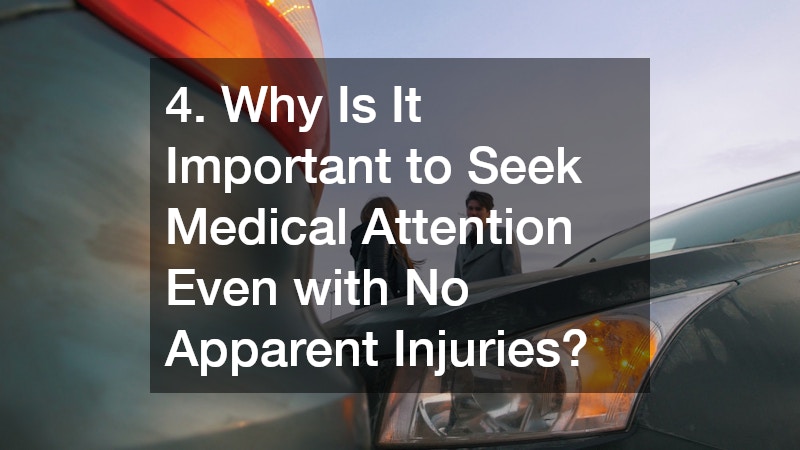
After an accident, adrenaline often masks pain or injury. Many drivers decline medical treatment because they feel “fine,” only to discover serious issues days or weeks later. Conditions such as whiplash, concussions, or internal injuries may not present immediate symptoms but can worsen without prompt care.
Seeking medical attention right away not only protects your health but also strengthens your insurance or legal claim. Medical records provide crucial documentation linking your injuries directly to the accident, which is vital if you need compensation later.
If your car is too damaged to drive safely, don’t hesitate to request car towing from a reliable company. Driving a compromised vehicle can worsen mechanical problems and jeopardize safety. A professional towing service can transport your vehicle to a trusted repair facility for inspection and repair.
Ultimately, your health should always come first. Even if you believe your injuries are minor, get checked out by a medical professional as soon as possible.
5. How Should I Document the Car Accident for Future Reference?
Proper documentation is one of the most important steps after any collision. Failing to gather and store evidence can make it difficult to prove what happened or support your claim later.
Start by photographing every angle of the accident scene, including all vehicles involved, license plates, damage, debris, road signs, and weather conditions. Write down the date, time, and location of the incident, and record witness contact information if available.
In addition to photos, keep copies of all police reports, medical records, and repair estimates. Organizing these documents in a dedicated folder or digital file makes it easier to reference them during insurance claims or potential legal proceedings.
If you own a high-end vehicle, such as a Mercedes, you might also benefit from working with a local Mercedes repair specialist. These professionals understand manufacturer specifications and can accurately assess damages for insurance documentation. Using specialized repair services ensures the vehicle is restored to its original safety and performance standards.
6. What Legal Steps Should I Take Following an Accident?
Legal considerations often come into play after an auto accident, especially if there are injuries or significant property damage. Many people delay contacting legal professionals, assuming the insurance process will handle everything. Unfortunately, this mistake can cost you valuable time and potential compensation.
If the accident involves injuries, multiple vehicles, or unclear fault, consider consulting a legal expert immediately. They can guide you on how to file claims, deal with opposing insurers, and preserve evidence.
Another crucial step is arranging for proper towing if your vehicle is immobile. A reputable tow truck company can safely move your vehicle to a repair facility or impound lot without causing further damage. Keep records of all towing receipts, as these costs are often reimbursable through insurance claims.
Your legal strategy should always be supported by accurate documentation, timely communication, and professional representation when needed.
7. Can I Still Use My Social Media Accounts After an Accident?
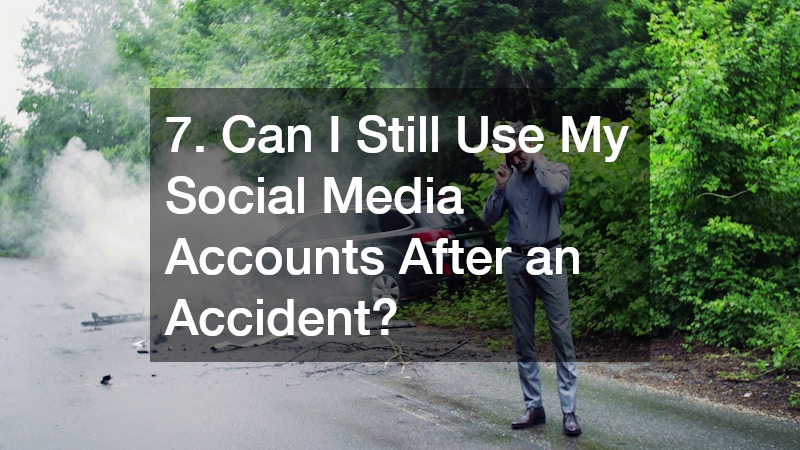
Social media might seem unrelated to a car crash, but what you post online can have serious consequences. Many accident victims inadvertently harm their own cases by sharing photos, status updates, or comments that can be misinterpreted.
Insurance adjusters and opposing attorneys often review social media accounts to find inconsistencies or statements that can undermine your claim. For example, posting photos of yourself at social events or engaging in physical activity can be used to suggest your injuries aren’t severe — even if those images were taken before the accident.
To protect yourself, avoid posting anything about the accident, your injuries, or the claims process. Ideally, limit social media use altogether until your case is resolved.
If your car has been totaled and you’re considering selling it, look for reputable junk cars services. These companies can help you dispose of damaged vehicles responsibly and sometimes offer cash for cars that are no longer drivable.
8. What If the Other Driver Is Uninsured or Underinsured?
Discovering that the other driver lacks adequate insurance can add even more stress to an already difficult situation. However, this scenario is more common than many realize.
If you’re involved in an accident with an uninsured or underinsured motorist, your own insurance policy may provide coverage through uninsured motorist (UM) or underinsured motorist (UIM) protection. Review your policy details carefully or speak with your agent to understand your options.
Do not accept cash offers from the at-fault driver, as this could void your right to future claims. Always report the incident to your insurer and obtain a police report for official documentation.
Additionally, use a reliable local transmission repairs shop or certified mechanic to assess vehicle damage before authorizing any work. In some cases, damage caused by uninsured drivers may be more extensive than it appears, particularly if drivetrain or transmission components are affected.
Prompt and accurate assessment ensures that any repair or compensation process is handled fairly.
9. Are There Common Misconceptions I Should Be Aware Of?
Many myths about car accidents can lead to poor decisions. For example, some people believe that if damage appears minor, there’s no need to report the accident or file a claim. This assumption can backfire, especially if hidden damage or delayed injuries appear later. Modern vehicles are designed with impact-absorbing materials that may conceal internal damage, such as misaligned frames or compromised sensors, which can become serious safety hazards if ignored. Even a small fender bender can lead to costly repairs or insurance complications down the line if not properly documented and reported.
Another misconception is that hiring a lawyer automatically means a lawsuit. In reality, most attorneys aim to negotiate settlements without going to court. Consulting car accident law firms early ensures you understand your rights, deadlines, and potential compensation. Legal professionals can also guide you through the process of dealing with insurance companies, ensuring that you’re not pressured into accepting a low settlement. They act as advocates, helping you gather evidence, evaluate medical records, and recover fair compensation for property damage and injuries.
Other misconceptions include thinking you must use the repair shop recommended by your insurer (you can choose your own), or that small accidents don’t affect future insurance claims (they often do). Many drivers also underestimate how social media posts or casual statements can harm their claims. The more informed you are, the better you can avoid costly missteps and protect your financial and legal interests after a collision.
10. How Can I Prevent Making Mistakes in Future Auto Accidents?
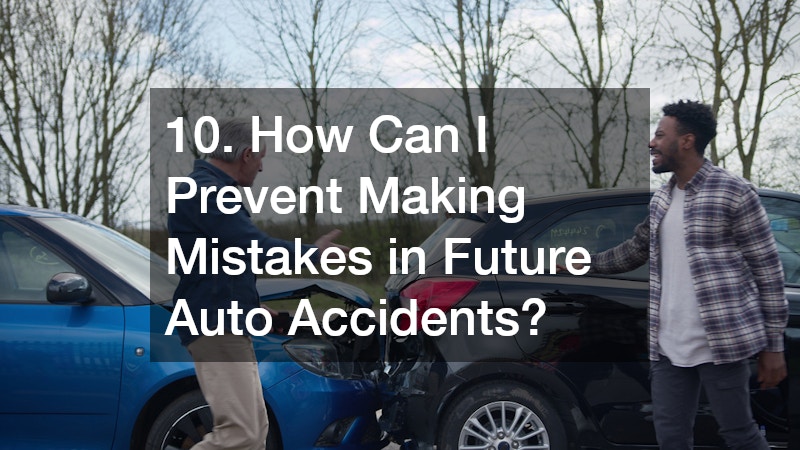
Preparation is the key to minimizing stress and mistakes after an accident. Keep an emergency kit in your car that includes a phone charger, flashlight, first aid supplies, and a printed checklist of steps to take after a collision.
Familiarize yourself with local traffic laws and maintain a trusted contact list of your insurance provider, preferred auto accident attorney, and reliable local repair shops. Knowing who to call in advance saves precious time when you’re under pressure.
Regular vehicle maintenance also plays a role in prevention. Scheduling consistent inspections, brake checks, and tire rotations helps reduce your chances of being involved in an accident caused by mechanical failure.
Lastly, stay informed. Reading up on safety best practices, local regulations, and accident response tips ensures you’re always prepared for unexpected situations on the road.
Auto accidents can happen to anyone, regardless of experience or caution. What truly matters is how you respond in the moments and days that follow. Avoiding common mistakes — such as admitting fault, neglecting medical care, or failing to document the scene — can make all the difference in your recovery and financial protection.
By taking the right steps, working with trusted professionals, and seeking advice from experienced auto accident attorneys and repair specialists, you can navigate the aftermath of a crash with confidence and clarity. Remember, knowledge is your best defense — and preparation today can prevent costly mistakes tomorrow.

